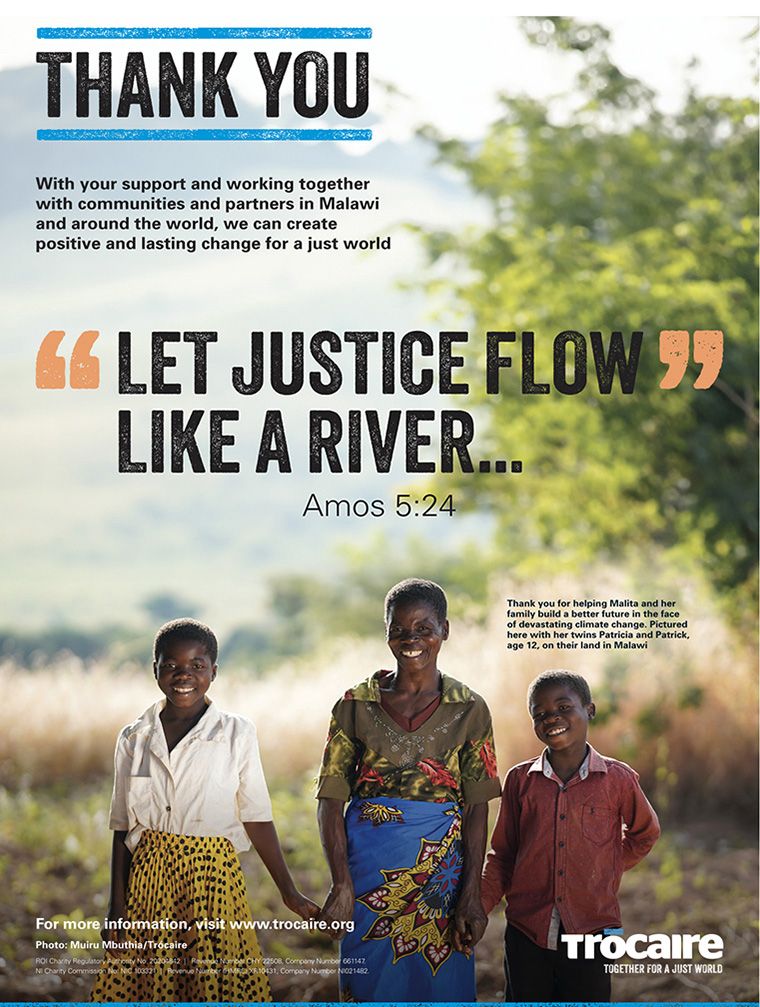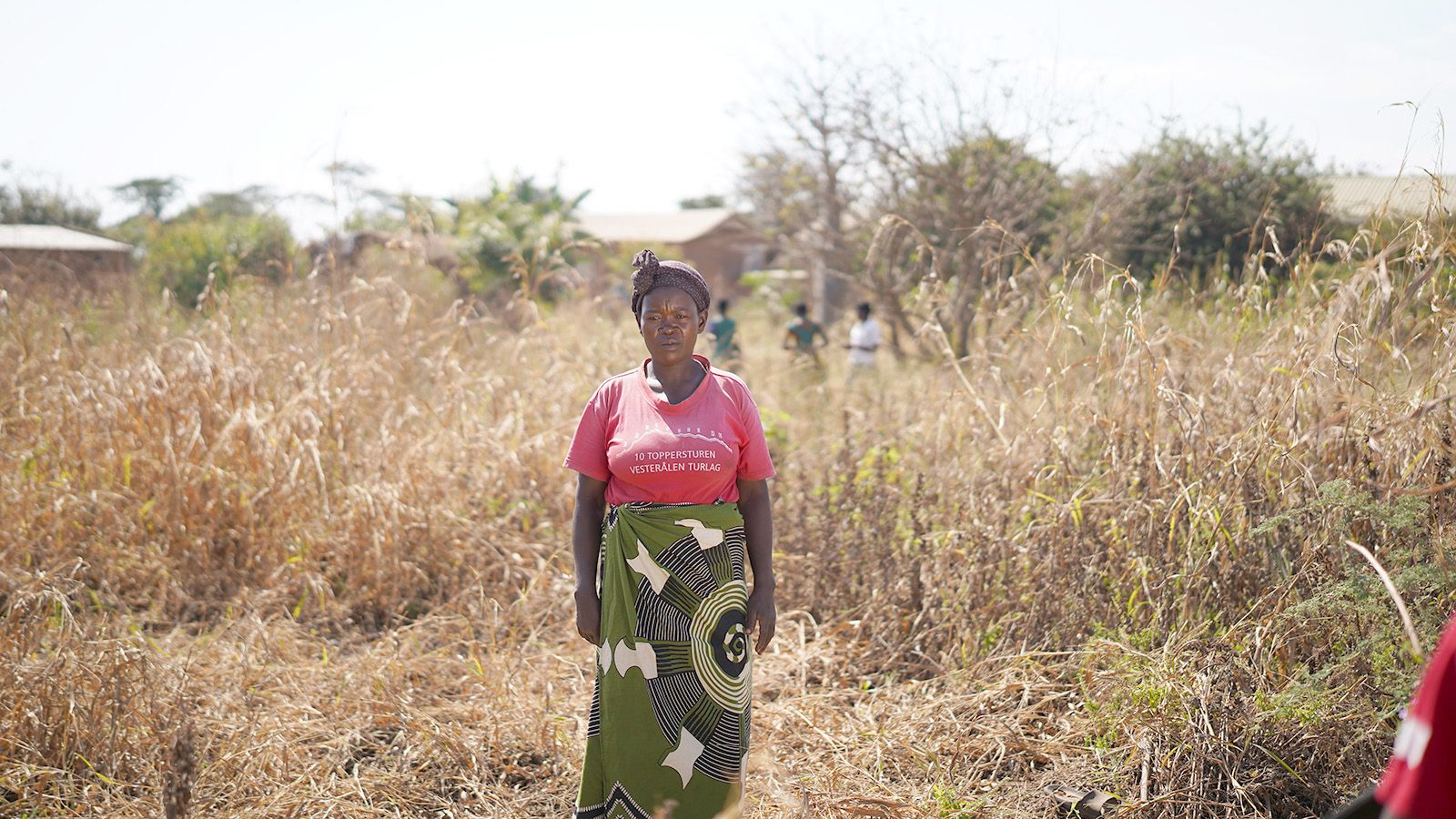ONE year ago on the 12th March 2023, Cyclone Freddy carved a path of destruction through Malawi and the devastation is still all too evident as families try to recover…
IN Chinkhwangwa Village in the east of the country, Mary Peter (42) is one of those who is trying to pick up the pieces of her life in the aftermath of the terrible storm. Mary Peter is a single mother of six children. Five of them were living with her together with a little two-year-old grandchild when the cyclone struck. Mary has lived in Chinkhwangwa all her life and inherited her house and an acre of farming land, around 30 minutes walk from the house, from her parents.
She recounted what happened when the cyclone hit her home.
“I remember vividly on the evening of the 12th March it was raining heavily. We were alerted by the Village Community Police (VCP) to be ready to take action if things got worse. This was in-person and by text. We had been hit by Cyclone Gombe in 2022 so knew to be ready and so I packed some of our things. My house sits a little higher than those around it, so neighbours were coming to me with their belongings as the waters started to rise. Things took a turn for the worse and the waters started rushing in so, fearing for my children, I left everything behind and ran with the children to the nearby school. I left the children there and went back to get our things.
When I got back the house was collapsing and my things were inside. I was too afraid to go in to try to salvage them. The wind was howling at this stage and I was very frightened. I went back to the school to check on my children. The water was up to knee level and the children were crying in fear. The rain continued for three days and we stayed in the school as it was the only place for us to go. We ate raw maize for three days to survive. On the third day the water levels were starting to go down a little so we went back to where our home had been and built a temporary shelter of sticks and plastic. My brother then helped me construct the small house of grasses that we are living in now. I had a small amount of savings that enabled me to buy food for the family at that time.
It took me two weeks to pluck up enough courage to go to my farmland as I was still so afraid of the water. I found that all my maize had been washed away together with my pigeon peas, which I used to feed my family. Nothing was left. At the house I had lost most of my animals – the goats, chickens and ducks. Only one duck and two ducklings survived the storm.
This International Women's Day, I would like to celebrate all the courageous and strong women in Sierra Leone & everywhere @trocaire works, who are standing up for women's rights.
— Caoimhe de Barra (@CdeBarra) March 8, 2024
We in are privileged to work with them and our partners, supported by donors, incl. @Irish_Aid. pic.twitter.com/AEDHsNaiPS
In the aftermath of the cyclone I was so grateful for the help that CADECOM (Trócaire’s partner) gave us. They distributed maize flour (50kg), blankets and water purification tablets. They advised on hygiene issues. They also gave us a cash transfer of 30,000Kw. The government also provided a little assistance to the community with 22 bags of maize to be divided between the 346 families. This worked out at around 1kg of flour to last each family three days if they ate once a day.
I have planted pumpkins and tomatoes in the hope of harvesting something for the family. I planted more maize after the cyclone but it was attacked by insects. It is going to be very hard to feed my children. I am going to have to rely on finding daily labour jobs to earn a little money to buy food now.
We have had flooding in the past when the river flooded but not like these cyclones and the flooding they bring. It is definitely becoming much worse and more severe. I don’t have the money to irrigate my land or protect the crops against pests. I wish I had a generator to irrigate the crops and I wish that the government would build flood defences at the river so that when these situations happen in future we might have some protection from flooding. I wish someone would help me rebuild my home but I doubt this will happen – I don’t think I’ll be able to rebuild it.
I am Catholic and the only thing that got me through this was my faith. I keep praying as my faith is strong. The support and encouragement we got from CADECOM and Trócaire really did mean a lot and gave us hope.”
To find out more about Trócaire’s work or to make a donation to the Lenten Appeal visit www.trocaire.org or call 0800 912 1200.





